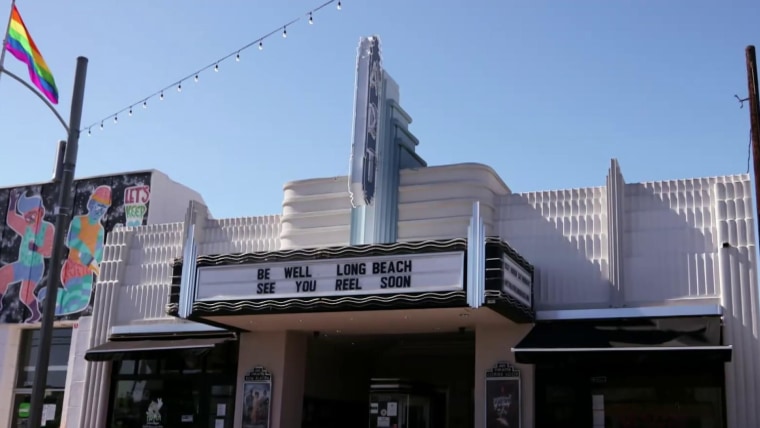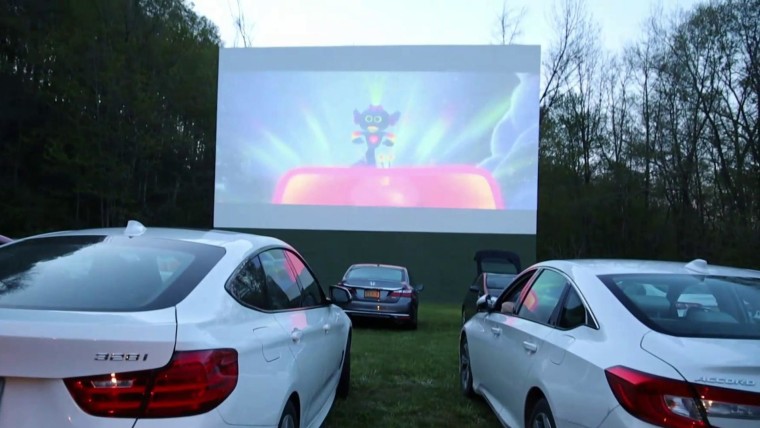Movie theaters are used to screening nail-biting endings, but are they now looking at their own?
Theaters have been shuttered since mid-March, and in the months since the curtain came down, thousands of theater staffers have been furloughed or laid off, rent on cineplexes has gone unpaid, and movie studios have canned premieres for their multimillion-dollar productions.
While box office receipts have hovered at a healthy $11 billion for North America for the past five years, analysts predict that ticket sales will plunge to $5.5 billion in 2020 — a 52 percent decline — according to MoffettNathanson, a media research company. AMC Theatres, the world’s largest cinema chain, said last week that it had “substantial doubt” that it could continue its operations for an extended period.
“In life, change is inevitable, of course. But in recent months, indeed, in recent weeks — whoa, Nelly, has there been a lot of change,” said Adam Aron, chief executive of AMC Entertainment, the parent company of AMC Theatres. His comments came during an investor call Tuesday afternoon after the company reported its earnings, which included a steep first-quarter loss of $2.2 billion.
Public health officials in California — the largest movie market in the U.S. — said Monday that they will allow theaters in some counties to open Friday, with 25 percent of capacity for the first two weeks. But there is no guarantee that moviegoers will return en masse — and lockdown habits may have changed the industry for good.
Katie Suter, a schoolteacher in New Jersey, said she won’t feel comfortable going back to the cinema until “a vaccine or treatments for COVID-19 are made available on the same level as the winter flu season.”
Mason Frith, a student at the University of Denver, said streaming services made theaters less important.
“It’s special to go to the movie theater and see stuff for the first time — but after this pandemic, I’m definitely wary of being in closed spaces. There are all the OTT platforms, so I definitely prefer to see stuff in my own house,” he said, referring to over-the-top streaming services such as Netflix and Hulu.
Full coverage of the coronavirus outbreak
Cinema executives believe there will still be demand for movies, even with concerns about COVID-19. Their hopes are pinned on the July 17 release of Warner Bros. Entertainment’s “Tenet,” followed by Disney’s “Mulan” and the Warner Bros. superhero flick “Wonder Woman 1984.”
“We very much believe in the value of theatrical experience,” Disney CEO Bob Chapek said on the company’s earnings call last month. “But we also believe that either because of changing and evolving consumer dynamics or because of certain situations like COVID, we may have to make some changes to that overall strategy.”
MT Carney, a former Disney executive, said: “Maybe [the coronavirus crisis] can bring back the drive-in theater, or maybe it’s a projection on a wall by a food court in the mall rather than in a movie theater.” Carney, a film buff who typically sees multiple movies a week, said that she doubts people want to sit in a confined space with strangers but that she believes the cinema experience can be replicated.
But if consumers do prove risk-averse, then the industry is looking for ways to fill seats on other days of the week.
“They may hold job fairs during the week, have social gatherings or church services on a Sunday,” said John Partilla, chief executive of Screenvision Media, which sells advertising that runs ahead of movie trailers. “They are all are having discussions about being more central to the community.”
Whether the theatrical business can survive COVID-19 is a question some smaller, independently owned cinemas can’t answer. Texas-based Alamo Drafthouse filed for bankruptcy protection for three of its movie theaters in Arizona last month.
Jim Billek, 62, operates Cinema North in Phillips, Wisconsin. He is having a hard time seeing a way out of the predicament. When asked about his losses, he said he has been too depressed to even look at his books. “We’re in a Catch-22. The business is based on volume.”
If he seats fewer people to accommodate social distancing, then financially “it just isn’t worth showing a movie,” he said. Another question is whether Hollywood will release its big movies until there’s enough of a market.
Rene Broussard, who runs Zeitgeist Multi-Disciplinary Arts Center in New Orleans, said, “We’d like to do an outdoor screening on the side of a building and invite people to come for a crawfish boil.” The cinema, which includes a bar, has remained open, limiting seats to 20 out of a possible 80 — even though his biggest night so far has been eight people. He has also been offering virtual screenings of new releases for a fee.
Broussard said he believes there are two types of customers, ones who will return quickly with few concerns about risks and a second group who will take their time.
“We’ve had cleaning crews come in every day, we’re going to have employees sanitize arm rests, and we’re installing hand sanitizer stations,” he said.
Download the NBC News app for full coverage and alerts about the coronavirus outbreak
Hamid Hashemi, former chief executive of iPic, which pioneered an upscale moviegoing experience, said there is pent-up demand for getting out. However, with cinemas offering much less capacity, the question for the operator becomes “can you survive doing that?” he said.
“Seventy-five percent of their business is Friday and Saturday night,” Hashemi said. “Given that a lot of theaters have taken seats out to reduce that to 25, 30 percent capacity, there is no way the business is going to work. But from a long-term perspective, things will get back to normal. This is a short-term challenge.”
Indeed, AMC told Wall Street on Tuesday that its busy theaters in Norway are a strong indication that its U.S. customers will return — it expects to be almost completely reopen by July — and that it can still make money even with lower capacity. But it said it is relying on Hollywood to stick to release dates.













